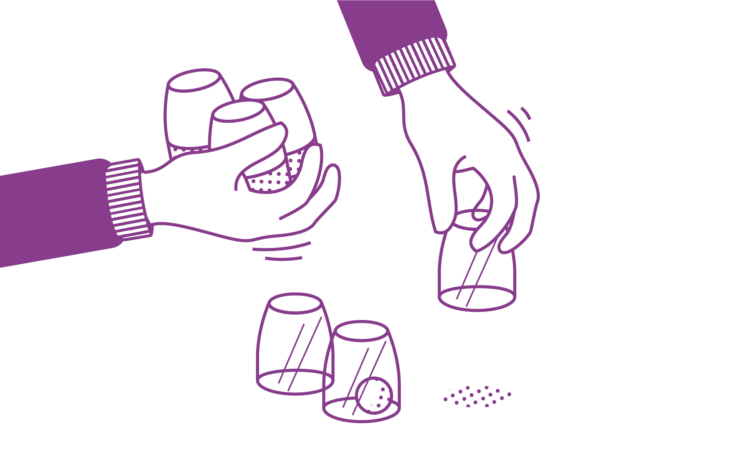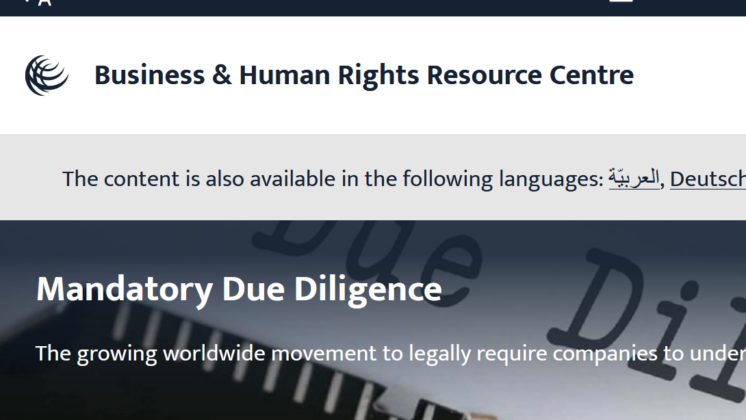Civil society coalitions have long advocated for international corporate accountability standards. Having achieved recognition of important standards for business in areas such as human rights, the environment, workers’ rights, and financial transparency, civil society activism is increasingly working to convert these standards (which are not legally enforceable) into strong laws.

For example, in 2011 the UN Human Rights Council adopted the UN Guiding Principles on Business and Human Rights (UNGPs). Civil society pressured governments to enshrine key elements of the UNGPs into hard law. In France and Germany, civil society coalitions successfully advocated for national due diligence laws based on the UNGPs. Coalitions in other European countries and in Canada are promoting similar national laws. European civil society organisations have also joined forces to promote an EU level due diligence law.
RESOURCE: BHRRC portal on Mandatory Due Diligence
Globally, civil society has also united to support the creation of a UN Treaty.
UN Binding Treaty to regulate business activities
Civil society coalitions, such as the Treaty Alliance and Global Campaign, are mobilising to advocate for a binding UN Treaty to regulate corporate activities in relation to human rights and the environment. Similar collective civil society action helped to create hard law on anti-corruption, financial transparency, modern forms of slavery, and arms control,
Anti-corruption
The United Nations Convention against Corruption is the only legally binding anti-corruption instrument. The UNCAC Coalition, a global network of 350 civil society organisations, played an important role in securing an effective monitoring mechanism for the Convention. The Coalition continues to promote and monitor the Convention.
Financial transparency
For example, the Extractives Industries Transparency Initiative (EITI) Standard promotes the transparent management of oil, gas and mineral resources. A multi-stakeholder group composed of government, companies, and civil society supports the implementation of the EITI standard in each country that has joined the EITI. Civil society organisations, including Publish What You Pay, have advocated for the strengthening of the EITI Standard.
Modern slavery
Several countries have passed legislation on modern forms of slavery (such as slavery, servitude, forced or compulsory labour, forced marriage and human trafficking), including the United Kingdom, Australia, and California (United States). Brazil also maintains a ‘dirty list’ of companies found to have modern slavery in their supply chains. Numerous civil society organisations have advocated for and continue to monitor modern slavery laws.
Arms control
The Arms Trade Treaty regulates the international trade in conventional arms. The civil society Control Arms coalition played a crucial role in states’ adoption of this treaty, which requires countries to control their import and export of arms and to pass laws requiring companies to act within the treaty’s limits. among other issues. International civil society collaboration has often borne fruit by working initially to establish voluntary standards and then moving on to work nationally and internationally for enforceable laws.
Another important avenue to create hard law to regulate companies is through court decisions or judge-made law.
Precedent
Court decisions and judge-made law are also called “precedent”. A legal precedent is a court decision that is considered the authority for future cases involving similar facts or legal issues. A court decision or precedent therefore can have a wider impact than just on the individual case at hand. For example, in 2021 a Dutch court ruled against Shell in a climate change case that several Netherlands-based NGOs brought. The court based its verdict to a large extent on two soft law standards – the UNGPs and the OECD Guidelines for Multinational Enterprises. The judges referred to the UNGPs as “authoritative” and “widely supported internationally”, and they strongly reinforced the expectation that companies should respect human rights throughout their operations.
Efforts to get judicial recognition of soft law standards is a counter-strategy for a range of harmful corporate strategies, including corporate lobbying against hard law, with substantial potential for the future.

